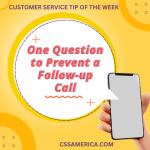
It’s that time of year when all good Americans due their duty – to purchase holiday gifts online. Okay, maybe it’s not as much a duty as it is a joy or chore, depending on your point-of-view.
Before I purchase anything online, I seek out reviews. This may involve a review from some reputable online publication. More often, I seek out reviews from fellow customers, and I put a TON of weight into their opinions. Even though the seller may offer specs on the product and glowing descriptions, the words of customers who purchased the item mean more.
They tend to tell you about the ordering and shipping experiences. They tell you how the assembly went, what they like and dislike, what works and what doesn’t, and what type of support they receive if there’s a question/issue/return involved. It helps me to make an informed decision.
Now, what it should also do is to help the seller improve the product or the buying process or the support process.
Think about seeing the buying experience, the “setup-for-use” experience, the product benefits/drawbacks, and the support experience all through the customer’s eyes! It’s like mystery shopping without having to mystery shop. It’s real-time information from real people about real experiences.
If you want to know how to improve yourself, your service, your organization, or your product, look for sources of customer input that already exist (and create those that don’t). Review the input; determine the common threads; find opportunities to recognize others, and find opportunities to get better.
Use customer comments to continuously improve.
Signup for FREE Tips! Contact Us More Resources for You Visit Our Home Page























